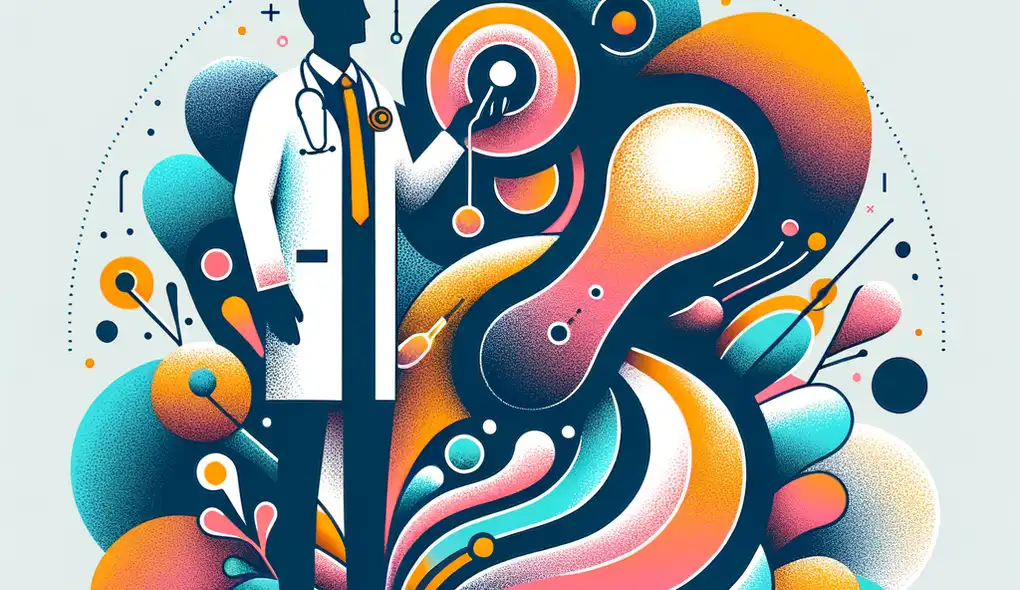Tell us about a time when you made a mistake in diagnosing or treating a patient. How did you rectify it?
Endocrinologist Interview Questions
Sample answer to the question
One time, I had a patient who presented with symptoms of hyperthyroidism. Based on their symptoms and initial test results, I diagnosed them with hyperthyroidism and prescribed medication to manage their condition. However, after a few weeks, the patient's symptoms did not improve and they reported experiencing new symptoms. Upon reviewing their test results again, I realized that I had misinterpreted the initial tests, leading to an incorrect diagnosis. To rectify the mistake, I immediately ordered more specific tests to accurately diagnose the patient's condition. Once the correct diagnosis was made, I adjusted the treatment plan accordingly and closely monitored the patient's progress. I apologized to the patient for the mistake and ensured them that their well-being was my top priority. From this experience, I learned the importance of double-checking and verifying test results to avoid misdiagnosis.
A more solid answer
In one particular case, a patient presented with symptoms of hyperthyroidism. Based on their symptoms and initial test results, I diagnosed them with hyperthyroidism and prescribed medication to manage their condition. However, after a few weeks, the patient's symptoms did not improve and they reported experiencing new symptoms such as weight gain and fatigue. Upon reviewing their test results again, I realized that I had misinterpreted the initial tests, leading to an incorrect diagnosis. To rectify the mistake, I immediately ordered more specific tests, including thyroid function tests and an ultrasound of the thyroid gland, to accurately diagnose the patient's condition. The results revealed that the patient actually had hypothyroidism instead of hyperthyroidism. Once the correct diagnosis was made, I adjusted the treatment plan accordingly by prescribing thyroid hormone replacement therapy. I closely monitored the patient's progress and scheduled regular follow-up appointments to ensure the effectiveness of the treatment. Additionally, I apologized to the patient for the misdiagnosis and took the time to explain the reasons behind the mistake. I also educated them about the differences between hyperthyroidism and hypothyroidism to alleviate any confusion. Through this experience, I learned the importance of thoroughness in reviewing and interpreting test results, as well as the significance of effective communication with the patient.
Why this is a more solid answer:
The solid answer provides more specific details about the actions taken to rectify the mistake, including ordering more specific tests and adjusting the treatment plan accordingly. It also highlights the candidate's expertise in diagnosing and managing complex endocrine conditions, as well as their proficient knowledge in interpreting diagnostic tests and imaging studies. However, the answer can still be improved by showcasing the candidate's excellent patient communication and counseling skills, as well as their capability to collaborate effectively with other healthcare professionals.
An exceptional answer
In a case where a patient presented with symptoms of hyperthyroidism, I initially diagnosed them with the condition based on their symptoms and initial test results. However, when the prescribed medication did not lead to symptom improvement and the patient reported new symptoms, I recognized the need to reassess the diagnosis. I organized a meeting with a multidisciplinary team consisting of other endocrinologists, radiologists, and pathologists to discuss the case and solicit their insights. This collaborative approach allowed us to identify the possibility of a rare condition called thyroiditis, which can cause temporary hyperthyroidism followed by hypothyroidism. To confirm the diagnosis, we performed additional tests, including thyroid antibodies and a nuclear medicine scan. The results confirmed our suspicion, and we adjusted the treatment plan accordingly, providing temporary symptom relief and closely monitoring the patient's thyroid function. I regularly communicated with the patient, explaining the complexities of their condition and the importance of the collaborative team effort in arriving at an accurate diagnosis. This experience further reinforced the value of effective communication and collaboration in providing optimal patient care.
Why this is an exceptional answer:
The exceptional answer elevates the response by showcasing the candidate's exceptional capability to collaborate effectively with other healthcare professionals. It emphasizes the candidate's initiative in organizing a meeting with a multidisciplinary team and using their insights to arrive at the correct diagnosis. Additionally, the answer demonstrates the candidate's excellent patient communication and counseling skills by highlighting their regular communication with the patient and explanation of the complexities of the condition. The answer also aligns with the job description's emphasis on collaboration and commitment to ongoing medical education and research. Overall, it presents a comprehensive and well-rounded response.
How to prepare for this question
- Be prepared to discuss a specific incident where you made a mistake in diagnosing or treating a patient. Ensure that the incident you choose highlights your ability to rectify the mistake and showcases your expertise in diagnosing and managing complex endocrine conditions.
- Demonstrate your proficiency in interpreting diagnostic tests and imaging studies related to endocrinology by describing the steps you took to reassess the diagnosis and order more specific tests to accurately diagnose the patient's condition.
- Highlight your excellent patient communication and counseling skills by discussing how you effectively communicated with the patient, apologized for the mistake, and provided them with a clear understanding of their condition and the necessary treatment adjustments.
- Emphasize your capability to collaborate effectively with other healthcare professionals by describing any collaborative efforts you made, such as seeking input from a multidisciplinary team or consulting with other specialists to ensure an accurate diagnosis and optimal patient care.
What interviewers are evaluating
- Expertise in diagnosing and managing complex endocrine conditions
- Proficient in interpreting diagnostic tests and imaging studies related to endocrinology
- Excellent patient communication and counseling skills
- Capability to collaborate effectively with other healthcare professionals
Related Interview Questions
More questions for Endocrinologist interviews